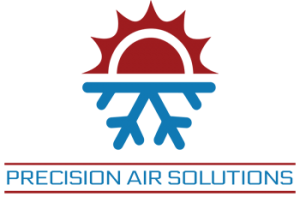Wildfires are a serious threat in California, especially during the summer months when the weather is hot and dry. Wildfire smoke contains a variety of harmful pollutants, such as particulate matter, carbon monoxide, nitrogen oxides, volatile organic compounds, and hazardous air pollutants. These pollutants can affect the quality of the air inside your home and damage your HVAC system.
Your HVAC system is designed to provide you with comfort and efficiency, but it’s not invincible to wildfire smoke. Smoke can clog your filters, reduce your airflow, damage your components, and compromise your indoor air quality. To protect your HVAC system and yourself from wildfire smoke, you need to take some proactive steps before, during, and after a smoke event.
Here are some tips on how to protect your HVAC system from wildfires in California:
1. Upgrade Your Air Filter
One of the most important things you can do to protect your HVAC system from wildfire smoke is to upgrade your air filter. A high-quality air filter can help trap most of the smoke particles and prevent them from entering your ductwork and indoor spaces. You should look for an air filter that has a high MERV rating (Minimum Efficiency Reporting Value), which indicates its ability to capture small particles.
A MERV 13 filter or higher can capture up to 90% of particles that are 0.3 microns or larger, like smoke, dust, pollen, bacteria, and viruses. You should also check and replace your air filter more frequently during wildfire season, as it can get dirty faster due to the increased amount of pollutants in the air.
2. Seal Windows and Doors
Another way to protect your HVAC system from wildfire smoke is to seal any gaps or cracks in your windows and doors that can allow outdoor air to enter your home. You can use weatherstripping, caulking, or foam tape to seal any openings and improve your home’s insulation. This will help prevent smoke from infiltrating your indoor spaces and reduce the load on your HVAC system.
3. Close the Fresh Air Intake Vent
Some HVAC systems have a fresh air intake vent that draws outdoor air into the system for ventilation purposes. While this feature can help improve indoor air quality under normal conditions, it can also introduce smoke into your home during a wildfire event. To prevent this, you should close the fresh air intake vent or set it to “recirculate mode” if possible. This will help keep your indoor air cleaner and reduce the exposure of your HVAC system to smoke.
4. Clear the Debris Around Your HVAC Unit
Wildfire smoke can also affect your outdoor HVAC unit, especially if it is surrounded by debris such as leaves, branches, grass clippings, or trash. This debris can catch fire or block the airflow around your unit, causing it to overheat or malfunction. To prevent this, you should clear any debris around your HVAC unit regularly and keep a safe distance between it and any flammable materials.
5. Invest in an Indoor Air Purification System
This is one of the best ways to protect your HVAC system and your health from wildfire smoke. An indoor air purifier can help remove most of the pollutants from the air inside your home, such as smoke particles, odors, VOCs, and HAPs. There are different types of indoor air purifiers available on the market, such as portable units, whole-home systems, or UV lights. You should consult with a professional HVAC contractor to find out which type of indoor air purifier is best suited for your home and budget.
These tips will help you protect your HVAC system from wildfires in California and enjoy a comfortable and healthy indoor environment. If you have any questions or need HVAC installation, repair, or maintenance services, we’re waiting for your call.

